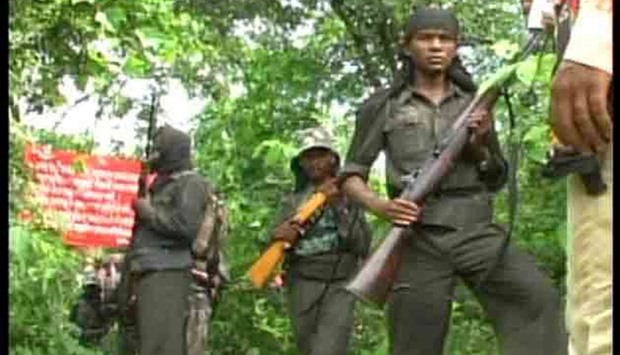Indian police said Friday they had killed two more Maoists in a remote part of eastern India, days after security forces launched a deadly ambush on a rebel camp in the same area.
Police said they acted after finding two suspected rebels during a search operation in the forest where 28 were killed on Monday, the deadliest assault in recent years on the insurgents.
"A continued combing operation has been on in the area after Monday's gunbattle," sub-inspector C.K. Dharua told AFP by telephone from the eastern state of Odisha where the attack occurred.
"During the search last evening, forces encountered two more Maoists and took action."
India's Maoist rebels operate in at least 20 Indian states and say they are fighting authorities for land, jobs and other rights for poor tribal groups.
The long-running insurgency has cost thousands of lives and was described by former Prime Minister Manmohan Singh as India's most serious internal security threat.
On Monday Indian police said they had ambushed a gathering of Maoist rebels at a forest camp near the border of Odisha and Andhra Pradesh states, triggering a gunbattle in which 24 were killed, seven of them women. Another four bodies were discovered at the scene on Wednesday.
One commando also died in Monday's ambush and weapons including four AK-47s and three self-loading rifles were recovered from the scene, police said.
Some activists have however cast doubt on the police version of events, pointing to the high number of deaths on the rebel side.
The South Asia Terrorism Portal website, which tracks violence, said the Maoist casualties were the heaviest suffered in a single incident in the recent years.
"Cops surrounded a Maoist meeting and shot them in cold blood terming it as an encounter," writer and activist Varavara Rao told the Indian Express.
India's Maoist insurgents are most active in the forested and resource-rich areas of Chhattisgarh, Odisha, Bihar, Jharkhand and Andhra Pradesh.
Government critics say attempts to end the revolt through tough security offensives are doomed to fail, and the solution is better governance and development of the region.

India's Maoist insurgents are most active in the forested and resource-rich areas of Chhattisgarh, Odisha, Bihar, Jharkhand and Andhra Pradesh.
